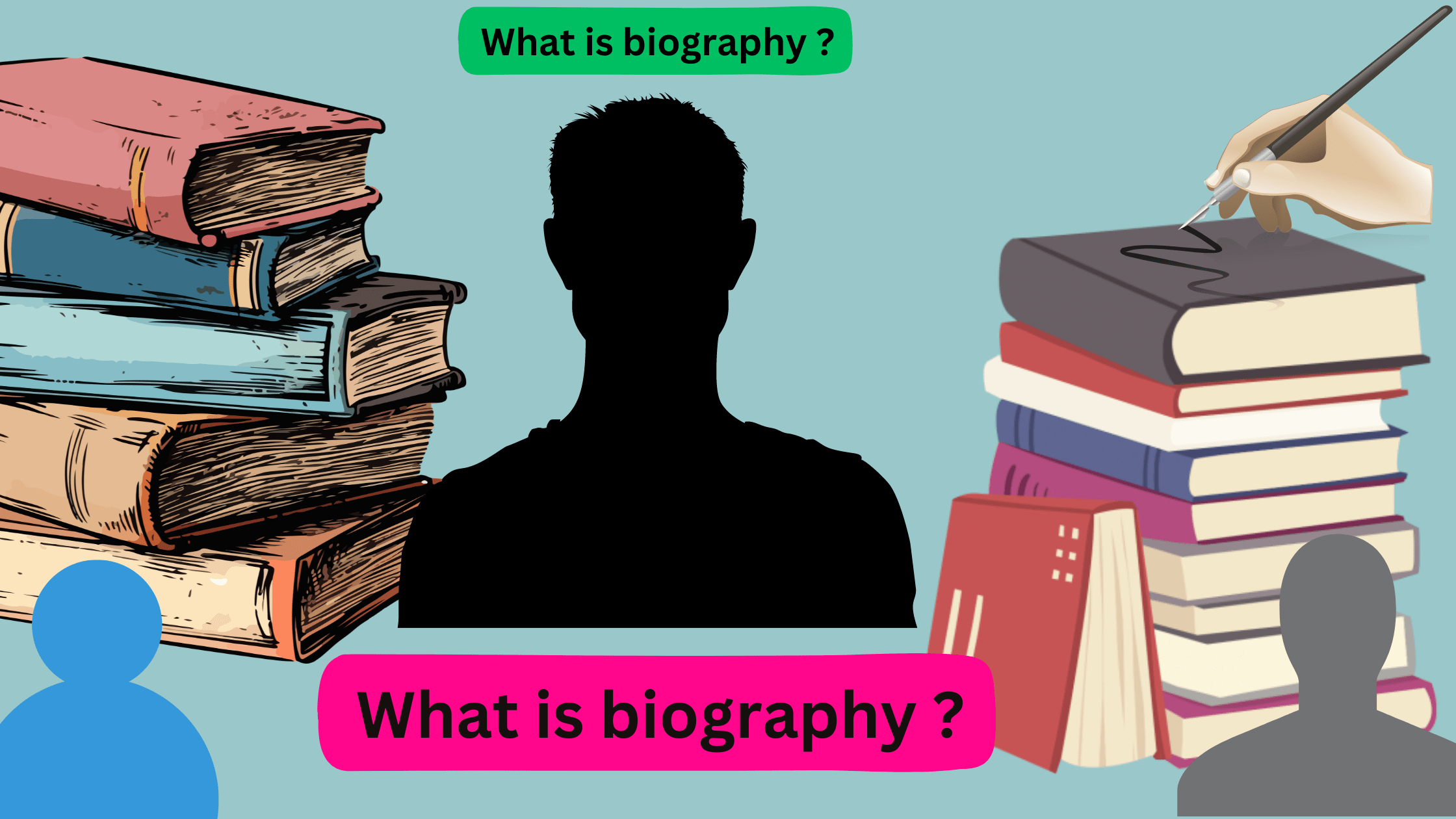How to Research for a Biography
Are you fascinated by the lives of historical figures or influential individuals? Do you dream of sharing their captivating stories with the world through a well-researched biography? If so, you’ve come to the right place. In this article, we will guide you on how to conduct thorough research to create a compelling and accurate biography.
Research is the foundation of any well-written biography, allowing you to uncover the hidden details and untold stories that shape an individual’s life. Whether you’re documenting a famous personality or a family member, diligent research is key to achieving an engaging narrative that resonates with readers.
In this guide, we will explore various research techniques and resources to help you gather factual information, anecdotes, and insights about your subject. From delving into archives, conducting interviews, and exploring digital databases to studying contemporary accounts and immersing yourself in primary and secondary sources, we will equip you with the tools needed to create a comprehensive and engaging biography.
Join us as we dive into the art of biographical research and unlock the secrets that will make your biography shine. Get ready to embark on a journey of discovery and storytelling that will captivate readers and breathe life into your subject’s legacy. Let’s begin!
The importance of research in biography writing
Biographies are powerful tools that allow us to delve into the lives of extraordinary individuals, uncovering their triumphs, struggles, and the defining moments that shaped their legacy. However, crafting a compelling and accurate biography requires meticulous research. Research is the foundation upon which a biography is built, providing the necessary factual information, personal insights, and historical context to create a rich and engaging narrative.
Without thorough research, a biography runs the risk of being superficial, lacking depth, and failing to capture the true essence of the subject. Research enables biographers to uncover hidden details, uncover previously untold stories, and gain a deeper understanding of the individual’s motivations, relationships, and the broader social, political, and cultural landscape in which they lived. This depth of knowledge is essential for crafting a biography that not only informs but also inspires and captivates the reader.
Moreover, research is crucial for ensuring the accuracy and credibility of a biography. Biographers have a responsibility to their subjects and their readers to present a factual and balanced account, free from bias or speculation. By meticulously verifying information, cross-checking sources, and corroborating details, biographers can build a solid foundation of knowledge that allows them to present a reliable and trustworthy narrative. This attention to detail and commitment to accuracy is what separates a well-researched biography from a superficial or sensationalized account.
Choosing a subject for the biography
Selecting the right subject for a biography is a crucial first step in the research process. The choice of subject can significantly impact the depth and breadth of the research required, as well as the overall appeal and relevance of the final work.
When choosing a subject, consider factors such as the individual’s historical significance, their impact on society, or the unique perspective they can offer. Biographies of famous historical figures, influential leaders, or pioneering innovators can often attract a wide readership, as they tap into the public’s fascination with the lives of those who have shaped the course of history.
However, the subject of a biography need not be a renowned public figure. Biographies of lesser-known individuals, such as family members, local community leaders, or unsung heroes, can also be immensely rewarding to research and write. These “untold stories” can provide valuable insights into the human experience, shedding light on the lives of those who may have been overlooked or marginalized in the broader historical narrative.
Regardless of the subject’s level of fame or recognition, the key is to choose someone whose life story resonates with you and whose experiences you are genuinely interested in exploring. This personal connection and curiosity will not only sustain your motivation throughout the research process but also infuse your writing with a genuine passion and understanding that will captivate your readers.
Primary and secondary sources for biography research
Effective biography research relies on a diverse array of primary and secondary sources to gather a comprehensive understanding of the subject’s life and times. Primary sources are firsthand accounts, documents, or artifacts that provide direct evidence and insight into the subject’s experiences, while secondary sources are interpretations, analyses, or commentaries based on primary sources.
Primary sources for biography research can include personal journals, letters, diaries, memoirs, autobiographies, official records, government documents, and even physical artifacts such as photographs, paintings, or personal belongings. These sources offer an unfiltered and intimate glimpse into the subject’s thoughts, emotions, and daily life, allowing biographers to capture the nuances and complexities of their subject’s experiences.
Secondary sources, on the other hand, can include biographies, historical accounts, scholarly articles, news reports, and other published works that provide context, analysis, and interpretation of the subject’s life and legacy. These sources can help biographers situate their subject within the broader historical, social, and cultural landscape, offering valuable insights and perspectives that may not be readily apparent in primary sources alone.
By combining primary and secondary sources, biographers can develop a well-rounded and multifaceted understanding of their subject, cross-referencing information, and identifying patterns, contradictions, or gaps in the available evidence. This comprehensive approach ensures that the biography presented to readers is not only factually accurate but also richly textured, providing a deeper and more meaningful exploration of the subject’s life.
Online research tools for biography writing
In the digital age, biographers have access to a wealth of online resources and research tools that can greatly enhance the efficiency and depth of their biographical investigations. These digital tools and platforms offer a wide range of functionalities, from facilitating archival research to enabling collaborative work and streamlining the writing process.
One of the most valuable online resources for biography research is digital archives and databases, which provide access to a vast trove of primary sources, including digitized documents, photographs, and multimedia materials. Platforms such as the Library of Congress Digital Collections, the National Archives Catalog, and various university and institutional digital archives offer biographers the opportunity to explore a treasure trove of historical records and personal materials from the comfort of their own workspace.
In addition to digital archives, biographers can leverage online research tools and software to manage their research materials, organize their notes, and collaborate with others. Cloud-based platforms like Evernote, Google Drive, and Dropbox allow biographers to store, access, and share their research materials across multiple devices, while specialized tools like Zotero and Mendeley can help with citation management and bibliographic organization.
Furthermore, the internet provides access to a wealth of secondary sources, including scholarly articles, biographies, and historical analyses, which can be easily searched and accessed through online databases, academic search engines, and digital libraries. These resources can help biographers contextualize their subject’s life and deepen their understanding of the broader historical and cultural landscape.
Conducting interviews for biographical information
Interviews are a crucial component of the biographical research process, as they provide biographers with the opportunity to gather first-hand accounts, personal insights, and unique perspectives directly from those who knew the subject best. Whether interviewing family members, friends, colleagues, or contemporaries, these conversations can uncover hidden details, uncover untold stories, and shed light on the subject’s motivations, personality, and the complex human experiences that shaped their life.
When conducting interviews for a biography, it is essential to approach the process with empathy, sensitivity, and a genuine curiosity to understand the subject’s life through the eyes of those who knew them. Biographers should take the time to build rapport with their interviewees, ensuring that they feel comfortable and willing to share their recollections and perspectives openly.
Preparation is key to conducting effective interviews. Biographers should research their subject thoroughly beforehand, familiarizing themselves with the key events, relationships, and contexts that shaped the subject’s life. This knowledge will not only inform the line of questioning but also demonstrate the biographer’s dedication and respect for the subject and their story.
During the interview, biographers should be attentive listeners, allowing the interviewee to share their memories and insights without interruption. Skillful questioning, probing for details, and following up on interesting leads can help uncover rich anecdotes, personal reflections, and nuanced understandings that may not be readily available in written sources. By capturing these unique perspectives, biographers can breathe life into their subject’s story and create a more vibrant and engaging narrative.
Tips for organizing and managing research materials
As biographers delve into the lives of their subjects, they are often inundated with a vast array of research materials, from historical documents and personal letters to interview transcripts and digital files. Effective organization and management of these resources are crucial to ensuring the success of the biography project, as they enable biographers to efficiently access, analyze, and synthesize the information needed to craft a cohesive and well-researched narrative.
One of the essential strategies for managing research materials is to develop a comprehensive filing system, either digital or physical, that allows for easy retrieval and cross-referencing of information. This may involve categorizing materials by type (e.g., primary sources, secondary sources, interview transcripts), chronology, or thematic relevance, and maintaining a detailed index or database to keep track of the location and contents of each item.
Digital tools can greatly enhance the organization and management of research materials. Cloud-based storage platforms, such as Google Drive or Dropbox, allow biographers to securely store and access their files from any device, while note-taking apps like Evernote or OneNote can help organize research notes, insights, and ideas in a centralized, searchable format. Specialized research management software, such as Zotero or Mendeley, can also facilitate the organization and citation of sources, streamlining the writing and referencing process.
In addition to organizing their materials, biographers should also develop effective strategies for note-taking and information synthesis. This may involve creating detailed summaries, extracting key quotes or data, and cross-referencing information from multiple sources to identify patterns, contradictions, or gaps in the available evidence. By consistently documenting and synthesizing their research, biographers can build a robust foundation of knowledge that will inform and enrich their writing.
Analyzing and evaluating research findings
As biographers delve into the wealth of research materials gathered during the investigative process, they must carefully analyze and evaluate the information to ensure the accuracy, credibility, and depth of their subject’s life story. This critical examination of the research findings is essential for identifying contradictions, gaps, or biases that may exist in the available evidence, and for developing a comprehensive and nuanced understanding of the subject’s experiences and the broader historical context.
One of the key steps in analyzing research findings is to carefully cross-reference information from multiple sources, both primary and secondary, to verify the accuracy and consistency of the data. By comparing accounts, identifying discrepancies, and seeking out authoritative sources, biographers can build a more reliable and well-rounded understanding of their subject’s life.
In addition to verifying the factual accuracy of the research, biographers must also critically evaluate the perspectives and biases present in their sources. This may involve considering the motivations, agendas, or personal experiences of the individuals or institutions that produced the primary or secondary sources, and the potential impact these factors may have on the representation of the subject’s life.
Furthermore, biographers should be attuned to gaps or silences in the available evidence, as these may reveal important aspects of the subject’s life that have been overlooked or suppressed. By identifying and addressing these gaps through additional research or creative interpretation, biographers can uncover new insights and present a more comprehensive and inclusive narrative.
Incorporating research into the biography narrative
Crafting a compelling and well-researched biography requires biographers to seamlessly integrate their findings into a cohesive and engaging narrative. This process involves more than simply presenting a chronological list of facts and events; it requires a thoughtful and deliberate approach to weaving together the various strands of research to create a rich, multifaceted, and captivating story.
One effective strategy for incorporating research into the biography narrative is to use the subject’s own words and perspectives to anchor the storytelling. By judiciously incorporating relevant quotes, excerpts from personal writings, or anecdotes shared by interviewees, biographers can bring the subject’s voice and experiences to the forefront, allowing the reader to gain a more intimate and authentic understanding of the individual.
Biographers should also strive to contextualize the subject’s life within the broader historical, social, and cultural landscape, drawing upon secondary sources and their own analytical insights to provide readers with a deeper understanding of the forces and circumstances that shaped the subject’s experiences and decisions. This contextual framing not only enriches the narrative but also helps readers appreciate the significance and impact of the subject’s life.
Moreover, biographers should be attuned to the emotional and psychological dimensions of their subject’s life, using the research findings to explore the subject’s motivations, relationships, and inner struggles. By delving into the complexities of the human experience, biographers can create a more nuanced and empathetic portrayal of their subject, fostering a deeper connection between the reader and the biographical subject.
Ethical considerations in biography research
Conducting research for a biography is a delicate and ethically charged process, as biographers must navigate the often-complex balance between honoring the subject’s privacy, respecting the integrity of the historical record, and presenting a fair and accurate account of the individual’s life. Ethical considerations are paramount in biography writing, as biographers hold a responsibility to their subject, their readers, and the broader historical and cultural legacy they aim to preserve.
One of the primary ethical concerns in biography research is the issue of privacy and consent. Biographers must carefully consider the impact their work may have on the subject’s living family members, close friends, or other individuals whose personal information or experiences may be included in the biography. In some cases, this may require obtaining consent or maintaining the confidentiality of sensitive information, even if it is relevant to the subject’s life story.
Another ethical consideration is the biographer’s obligation to present a fair and balanced account of the subject’s life, acknowledging both their strengths and their flaws, their triumphs and their failures. Biographers must resist the temptation to sensationalize or distort the subject’s life for the sake of a more compelling narrative, and instead strive to present a nuanced and objective portrayal that honors the subject’s complexity and humanity.
Furthermore, biographers must be vigilant in ensuring the accuracy and integrity of their research, verifying information from multiple reliable sources and being transparent about any gaps or uncertainties in the available evidence. Fabrication, plagiarism, or the misrepresentation of research findings can not only undermine the credibility of the biography but also violate the trust of the subject, their family, and the broader scholarly and literary community.
Conclusion and final thoughts on conducting effective biography research
Conducting thorough and effective research is the foundation upon which a compelling and accurate biography is built. By immersing themselves in primary and secondary sources, engaging in meaningful interviews, and meticulously organizing and analyzing their findings, biographers can uncover the hidden stories, personal insights, and historical context that breathe life into their subject’s legacy.
The research process for a biography is a multifaceted and iterative journey, requiring biographers to approach their work with a combination of diligence, creativity, and ethical integrity. From navigating digital archives and databases to building rapport with interview subjects, biographers must demonstrate a deep commitment to understanding their subject’s life and experiences, while also remaining attuned to the broader social, cultural, and historical forces that shaped their subject’s world.
Ultimately, the research that underpins a biography is not merely a means to an end, but an integral part of the storytelling process itself. By weaving their research findings seamlessly into a captivating narrative, biographers can transport readers into the lives of their subjects, fostering a deeper understanding and appreciation of the human experience. Through this powerful blend of rigorous investigation and compelling storytelling, biographers have the opportunity to immortalize the lives of extraordinary individuals, ensuring that their legacies continue to inspire and captivate generations to come.


